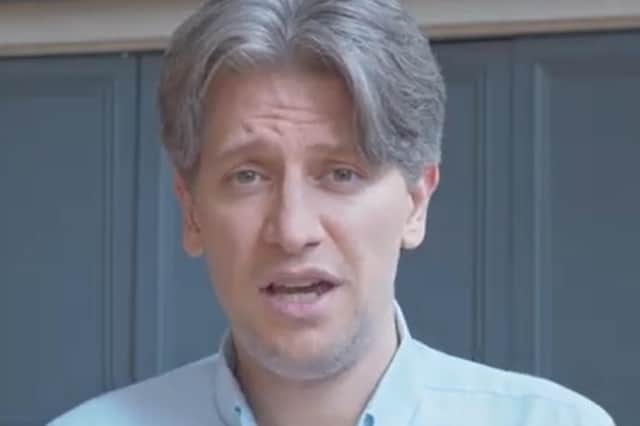Ulster Orchestra: Interpretation of Elgar's 'Enigma Variations' strikes all the right notes


The ‘Enigma Variations’ were last performed by the orchestra in the Ulster Hall seven or eight years ago under the direction of the distinguished Dutch conductor Jac van Steen, and there was a particular interest as to how this Elgar iconic piece would be interpreted this time by maestro Rustioni, who sadly is nearing the end of his tenure with the Ulster Orchestra for which he has done so much.
In the event it was a memorable interpretation with each musical cameo given its proper place in the entire landscape of the work.
Advertisement
Hide AdAdvertisement
Hide AdThis performance of the famous Nimrod variation, so redolent of Remembrance Day ceremonies, was particularly powerful and emotional, given the current horrific slaughter in the Ukraine and Gaza.
The Enigma finale rose to a triumphant climax, and so much so that the Ulster Hall’s mighty Mulholland Organ – so rarely heard nowadays – was almost drowned out.
The central work of the evening was the Brahms Double Concerto with spellbinding performances from the cellist Daniel Muller-Schott, and the violinist Francsca Dego, aka Mrs Rustioni.
This was Brahms’ last orchestral work at the end of an epic musical career, but the mood was more warm and sunny than nostalgic, and the soloists captured all the nuances of this beautiful swansong.
Advertisement
Hide AdAdvertisement
Hide AdThere was also a generous and substantial encore with Francesca and Daniel combining brilliantly like old friends entertaining themselves and the capacity audience with their distinctive ‘Variations on a Theme’ by Handel.
Mention should also be made of the opening music – the impressive ‘Sussex Landscape’ by Avril Coleridge Taylor (1903-1998) whose musical portfolio has been somewhat sadly overlooked.
Full marks to the Ulster Orchestra for continuing its policy of bringing to our attention the music by women composers who deserved more recognition from their male peers, and from fellow musicians from later generations.
The Ulster Orchestra’s next evening Northern Lights concert in the Ulster Hall on February 23 will feature the music of Sibelius, Eno Tamberg and Beethoven.